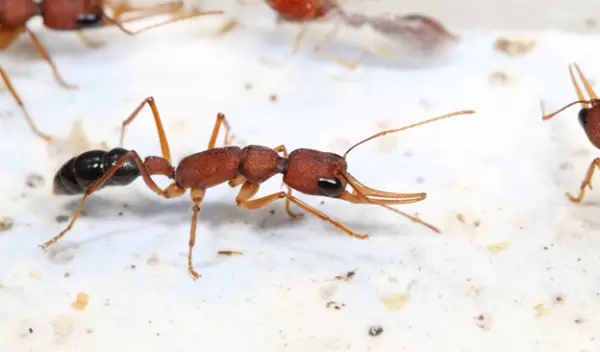
Anti-insulin protein linked to longevity and reproduction in ants
An insulin-suppressing protein may be the fountain of youth for ants and provide clues about aging in other species, according to a study led by New York University researchers.
Published in Science and supported in part by the U.S. National Science Foundation, the study shows that queen ants exhibit high metabolism for reproduction without aging. They do that by generating an anti-insulin protein that blocks only part of the insulin pathway that is responsible for aging.
In many animals, having many offspring is linked to a shorter life span. This trade-off between reproduction and longevity in animals is thought to result from the allocation of nutritional and metabolic resources.
Insulin, a hormone that helps convert food into energy, plays a major role in metabolism but also in aging. Producing eggs is energy-intensive and requires extra food, raising insulin levels. But increased activity of the insulin pathway required for reproduction leads to a shorter life span in most animals. In contrast, dietary restriction prolongs life by keeping insulin levels down.
Ants are a notable exception to the trade-off between reproduction and longevity, as their queens—responsible for the whole colony's reproduction — live longer than worker ants while sharing the same genome. In Harpegnathos saltator ants, a species of jumping ant native to India that was the focus of this study, queens typically live for five years while workers live for only seven months.
When the H. saltator queen dies in a colony, a peculiar event occurs: Female worker ants duel each other with their antennae, vying to become the next queen. The winners change "caste" in the ant society and become pseudoqueens, also known as gamergates, while remaining in the smaller body of a worker. Pseudoqueens acquire queenlike behaviors, including laying eggs, and their life expectancy substantially increases from seven months to four years. But, if they are replaced by another queen, they revert to their worker status and stop laying eggs, and their life span shortens back to seven months.
